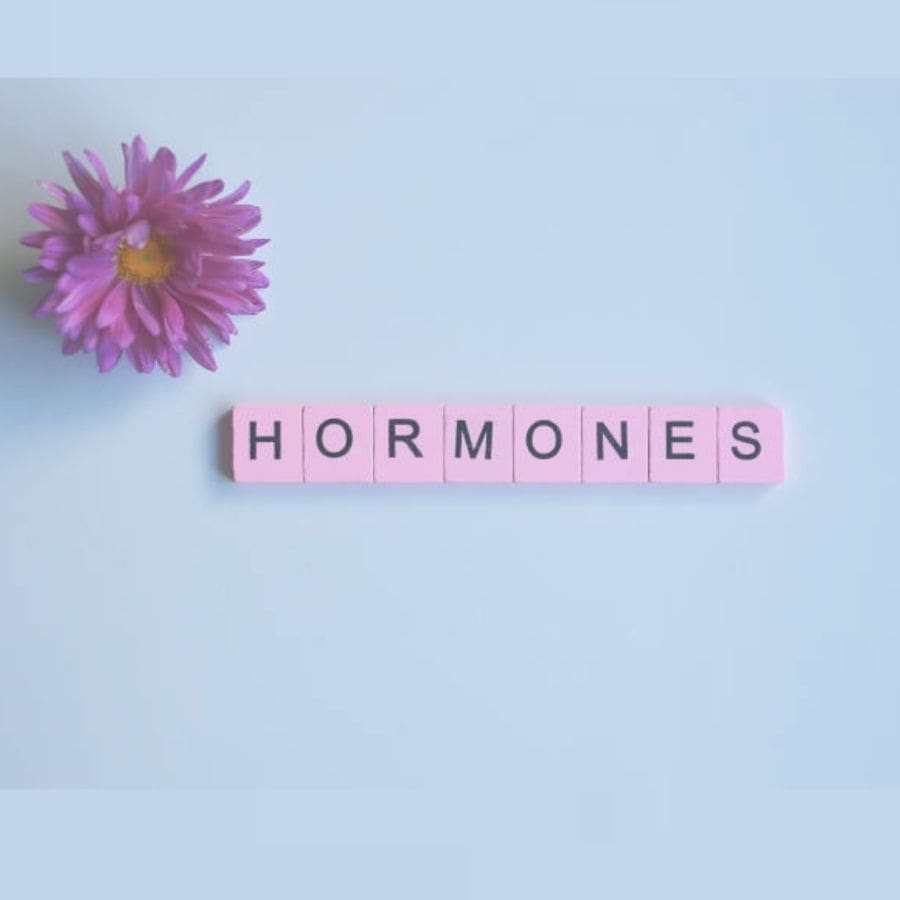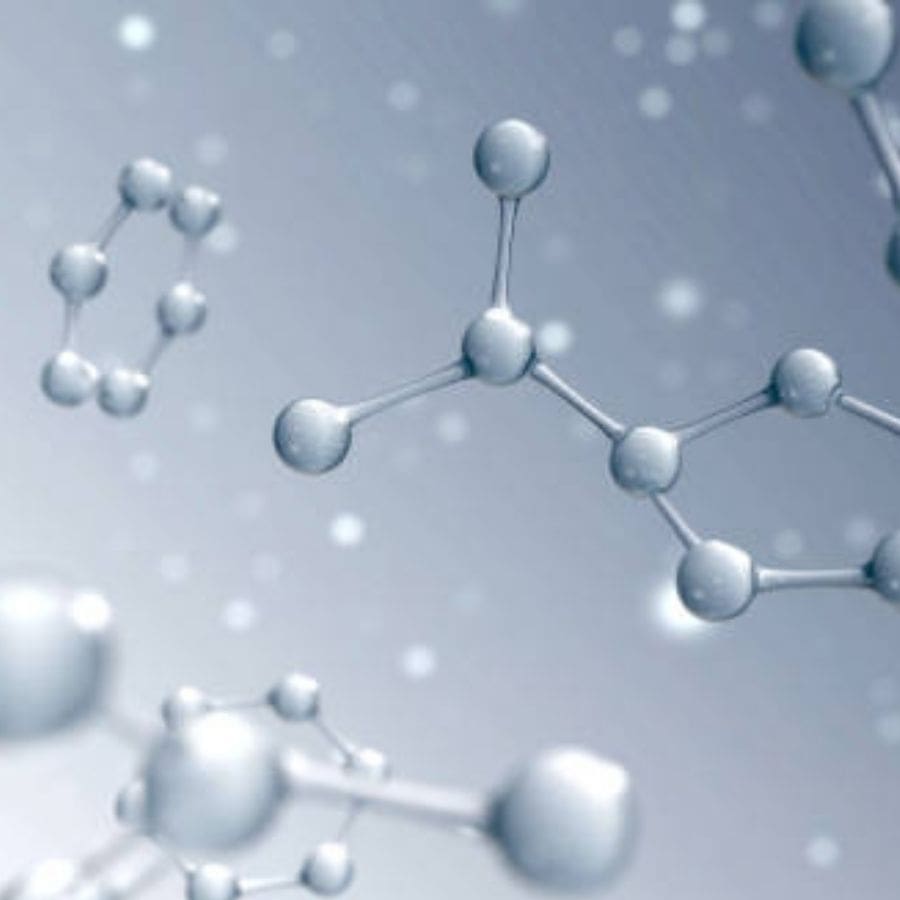How Do Hormones Affect Your Wellness?

Hormones are not just any messenger substances – they have a major impact on mental, physical, and emotional health. What is the role of hormones? Which hormones are the most important? What happens if you suffer from a hormonal imbalance? We answer your questions, simply.
Did you know that your testosterone level can influence your vitamin D level? This is just one example of the many interactions between hormones and processes in your body.
Hormones control libido, hunger, fatigue, our mood, and much more. It often seems that we are at the mercy of the fluctuations and moods of our hormones. But all is not lost! There are ways to control them to some degree, and naturally avoid hormonal imbalance – diet, sleep hygiene, and physical exercise [1].
Table of Contents
- Hormones Explained: Happiness Hormones, Sleep Hormones, Stress Hormones, Sex Hormones.
- Where Are Hormones Produced?
- What Is The Role Of Hormones?
- Sex Hormones: Testosterone And Estrogen
- Female Hormones
- Male Hormones
- The Stress Hormone – Cortisol
- The Happiness Hormone – Serotonin
- The Sleep Hormone – Melatonin
- The Cuddling Hormone: Oxytocin
- Insulin
- Thyroid Hormones
- Hormonal Imbalance – When Hormones Bring Confusion To Our Body
- Hormones At A Glance: Quick Summary
Hormones Explained: Happiness Hormones, Sleep Hormones, Stress Hormones, Sex Hormones.
Hormones are biochemical messengers that enter all parts of our body through our bloodstream. It is therefore not surprising that they are involved in many different processes in our body. Among other things, hormones play a role in [2]:
- Development And Growth Processes
- Metabolic Processes
- Sexual Functionality
- Reproduction
- Emotions And Mood
Where Are Hormones Produced?
Our body produces hormones in the endocrine glands. The glands then release the hormones into the blood or allow them to act directly on neighboring cells in their immediate environment.
The adrenal glands, the pancreas as well as the testicles, and ovaries are well-known examples of endocrine glands [3].

What Is The Role Of Hormones?
It is not possible to say in general terms what the role of hormones is, as their missions are vast and can be very different. In order to give you a quick overview, we have summarized the main hormones and their functions.
Sex Hormones: Testosterone And Estrogen
Estrogen is known as the female hormone and testosterone as the male hormone: This categorization is because women generally produce more estrogen and men more testosterone. Nevertheless, these two hormones play an important role in the body, whether you are a woman or a man.
As their name suggests, these hormones are primarily responsible for libido and reproduction. When the hormone levels in your body drop, your desire also goes away [4].
Female Hormones
Estrogen has other functions in the female body besides reproduction and is primarily responsible for the development process from girl to woman. They provide among others [4]:
- Armpit And Pubic Hair
- Formation Of Lactic Acid In The Vagina
- Development Of Fat In Certain Parts Of The Body (buttocks/hips)
- Appearance Of The Skin
Male Hormones
Testosterone is mainly produced in the testicles in men and in the ovaries in women. In general, testosterone is one of the androgens, the most important male sex hormones [5]. Like estrogen, testosterone has several functions in the body [6]:
- Body And Pubic Hair
- In Men, Sperm Production
- Growth And Stability Of Bones
- Blood Production
- Libido
- Fat Reduction And Muscle Building
The Stress Hormone – Cortisol
When people talk about stress, they are often also talking about cortisol. This hormone is released by your body whenever you are in a stressful situation. The release of this stress hormone triggers various reactions, for example [7]:
- The Blood Sugar Level Rise
- Inflammations Of The Immune System Are Inhibited
- Blood Pressure Is Maintained
- Energy Supply
Stress and the short-term release of cortisol can be very useful in dangerous situations, for example, so that the body can react quickly. However, if your body is exposed to constant stress, it has many potentially harmful effects on your health [8], [9]. See also: Normal cortisol and the circadian cycle.
The Happiness Hormone – Serotonin
Serotonin is a hormone and neurotransmitter (messenger substance in the brain) that makes you happy. This is because the part of your brain responsible for negative emotions is suppressed by serotonin. Along with another neurotransmitter, dopamine, serotonin acts against depression, sadness, and anxiety [10].
Serotonin also sends signals in the body, for example, to make your heartbeat, to address muscles, and to trigger thought processes. It also has a significant effect on body temperature and digestion [8].
Serotonin also stimulates the parts of the brain that control your sleeping and waking rhythm. Another hormone that, along with serotonin, is essential for sleep is melatonin.
The Sleep Hormone – Melatonin
While serotonin brightens the mood, melatonin induces sleep. It is especially in the evening that the concentration of this hormone increases and makes you sleep. But that’s not all, because melatonin also affects other important processes in the body [11]:
- Body Temperature
- Blood Pressure
- The Release Of Other Hormones
- Immune System
The formation of melatonin in our body is highly dependent on light. You get tired earlier in winter than in summer because the days are shorter. And artificial light from smartphones and laptops can keep you awake at night because it prevents your brain from producing melatonin [12].
The Cuddling Hormone: Oxytocin
Oxytocin is released when we are close to other people or even animals. The cuddling hormone is released in large quantities, especially during sex [13].
Thanks to its release, you relax and feel happy. Oxytocin works in concert with a number of other hormones, including serotonin, dopamine, and endorphin [10]. Oxytocin levels are particularly important for the parent-child bond [14].
Oxytocin can be released not only through physical contact, but also through sports activities such as running [13]. It also plays an important role in sperm activity and motility [15], [16].
Insulin
The hormone insulin works like a key: it is responsible for opening the cells of the body so that they can absorb sugar from the blood. Cells need sugar or glucose for energy [17].
You probably know insulin primarily in relation to diabetes mellitus. It comes in different forms, such as type 1, type 2 or a{quote} diabetes, or gestational diabetes.
Apart from some differences in their expression, all forms of diabetes mellitus have in common that the key principle of insulin has a problem: the cells are less open, if at all, which means that the sugar remains in the blood and that the blood sugar level increases overall.
The increase in this long-term blood sugar level is accompanied by many health problems, such as deafness or visual impairment. It can also affect the kidneys and increase the risk of strokes [18].
Thyroid Hormones
They include several hormones that are produced in and released from the thyroid gland. In particular, the two hormones thyroxine (T4) and triiodothyronine (T3) influence processes that regulate development, growth, and metabolism in the body [19]. More specifically, the thyroid gland and its hormones are involved in the following processes:
- Energy Consumption And Body Temperature
- Activity Of Muscles, Nerves, Heart, Circulation, Digestive Tract
- Emotional Well-Being
- Sexuality
- Physical And Mental Development (especially in children)
The relevance of the thyroid gland becomes obvious if it has excessive or insufficient functioning – if it leads to hormonal imbalance. An underactive thyroid can lead to listlessness, weight gain, lack of drive, feeling cold, constipation, and a general decline in performance.
Hyperthyroidism can manifest as nervousness, weight loss, warmth, and diarrhea [20].
Hormonal Imbalance – When Hormones Bring Confusion To Our Body
Hormonal imbalance results in hormone levels that are too low or too high. If a deficiency or excess in hormone levels occurs, it can lead to serious health effects. The symptoms that accompany a hormonal imbalance are diverse and not always easy to interpret.
Depending on the hormone concerned, the symptoms experienced will be different. For example, chronic stress can permanently raise cortisol levels, which increases the risk of osteoporosis and is also thought to be associated with depression. If levels of the sleep hormone melatonin get too high or too low, it can lead to insomnia.
Hormonal imbalance can also affect sex hormones can change dramatically. If estrogen levels in women drop too low before menopause, periods will stop early and, in the worst case, there will be infertility. A deficiency in testosterone can, among other things, lead to a decrease in muscle strength and physical performance as well as erectile dysfunction.

Hormones At A Glance: Quick Summary
What Are Hormones?
Hormones are messenger substances that perform many different jobs in the body. They are produced and released in the endocrine glands when the body reacts to a certain situation.
What Role Do Hormones Play?
Each hormone has its own important tasks. The sex hormones, estrogen, and testosterone, among other things, control libido and reproduction. As a stress hormone, cortisol puts your body on high alert and can become harmful under constant stress.
The happiness hormone, serotonin, and the sleep hormone, melatonin, together with regulating your sleep-wake pattern. Oxytocin plays an important role in cuddling and, more generally, in our relationships with other people and animals. In addition, the thyroid hormones thyroxine and triiodothyronine are essential for many vital body functions, such as metabolism and growth processes.
Sources
[1] E. Wehr, S. Pilz, BO Boehm, W. März, und B. Obermayer-Pietsch, „Association of vitamin D status with serum androgen levels in men“, Clin. Endocrinol. (Oxf.), Bd. 73, Nr. 2, S. 243–248, Aug. 2010, doi: 10.1111/j.1365-2265.2009.03777.x.
[2] Medline Plus, “Hormones”. https://medlineplus.gov/hormones.html.
[4] S. Silbernagl, A. Despopoulos, R. Gray, und A. Rothenburger, Taschenatlas Physiologie, 8., überarbeitete und erweiterte Auflage. Stuttgart New York: Thieme, 2012.
[5] E. Nieschlag, HM Behre, und S. Nieschlag, Testosterone: Action, Deficiency, Substitution. Cambridge University Press, 2012.
[6] PC Heinrich, M. Müller, und L. Graeve, Hrsg., Löffler/Petrides Biochemie und Pathobiochemie. Berlin, Heidelberg: Springer Berlin Heidelberg, 2014.
[7] M. Schwab, Encyclopedia of Cancer. Springer Science & Business Media, 2011.
[8] Faller, Adolf; Schünke, Michael, Der Körper des Menschen – Einführung in Bau und Funktion, 17. Aufl. Thieme, 2016.
[10] D. Dfarhud, M. Malmir, and M. Khanahmadi, „Happiness & Health: The Biological Factors- Systematic Review Article“, Iran. J. Public Health, Bd. 43, Nr. 11, S. 1468–1477, Nov. 2014.
[11] B. Claustrat und J. Leston, „Melatonin: Physiological effects in humans“, Neurochirurgie., Bd. 61, Nr. 2–3, S. 77–84, Juni 2015, doi: 10.1016/j.neuchi. 2015.03.002.
[12] GM Brown, „Light, melatonin and the sleep-wake cycle.“, J. Psychiatry Neurosci., Bd. 19, Nr. 5, S. 345–353, Nov. 1994.
[13] N. Magon und S. Kalra, „The orgasmic history of oxytocin: Love, lust, and labor“, Indian J. Endocrinol. Metab., Bd. 15, Nr. 7, S. 156, Jan. 2011, doi: 10.4103/2230-8210.84851.
[14] R. Feldman, I. Gordon, und O. Zagoory‐Sharon, „Maternal and paternal plasma, salivary, and urinary oxytocin and parent–infant synchrony: considering stress and affiliation components of human bonding“, Dev. Sci., Bd. 14, Nr. 4, S. 752–761, 2011, doi: 10.1111/j.1467-7687.2010.01021.x.
[15] S. Irianti, AB Ginandjar, SR Krisnadi, JS Effendi, D. Nataprawira, and S. Gandamihardja, „Aerobic Exercise and Its Effect on Oxytocin Level and Labor Progression“, IOP Conf. Ser. Mater. Science. Eng., Bd. 180, S. 012177, März 2017, doi: 10.1088/1757-899X/180/1/012177.
[16] U. Fuchs, C. Leipnitz, and TH Lippert, „The action of oxytocin on sperm motility. In vitro experiments with bull spermatozoa“, Clin. Exp. Obstet. Gynecol., Bd. 16, Nr. 4, S. 95–97, 1989.
[17] G. Wilcox, “Insulin and Insulin Resistance”, Clin. Biochem. Rev., Bd. 26, Nr. 2, S. 19–39, May 2005.
[18] Mayo Clinic, “Hyperglycemia in diabetes – Symptoms and causes“, Mayo Clinic, Nov. 03, 2018. https://www.mayoclinic.org/diseases-conditions/hyperglycemia/symptoms-causes/syc-20373631 (zugegriffen June 02, 2020).